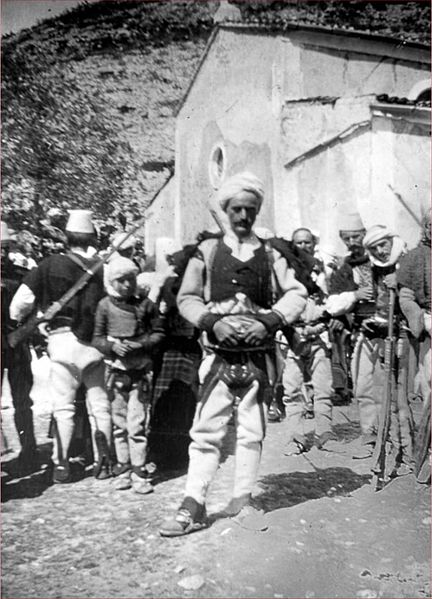The term tribe is used in many different contexts to refer to a category of human social group. The predominant worldwide usage of the term in English is in the discipline of anthropology. Its definition is contested, in part due to conflicting theoretical understandings of social and kinship structures, and also reflecting the problematic application of this concept to extremely diverse human societies. The concept is often contrasted by anthropologists with other social and kinship groups, being hierarchically larger than a lineage or clan, but smaller than a chiefdom, ethnicity, nation or state. These terms are similarly disputed. In some cases tribes have legal recognition and some degree of political autonomy from national or federal government, but this legalistic usage of the term may conflict with anthropological definitions.
Tribes of Madhya Pradesh, India
Men of the Shkreli tribe at the feast of Saint Nicholas at Bzheta in Shkreli territory, Albania, 1908
In anthropology, kinship is the web of social relationships that form an important part of the lives of all humans in all societies, although its exact meanings even within this discipline are often debated. Anthropologist Robin Fox says that the study of kinship is the study of what humans do with these basic facts of life – mating, gestation, parenthood, socialization, siblingship etc. Human society is unique, he argues, in that we are "working with the same raw material as exists in the animal world, but [we] can conceptualize and categorize it to serve social ends." These social ends include the socialization of children and the formation of basic economic, political and religious groups.
A multi-generational extended family in Chaghcharan, Ghor Province, Afghanistan.
A multi-generational extended family of Eastern Orthodox priest in Jerusalem, c. 1893
An illustration of the bi-relational and tri-relational senses of nakurrng in Bininj Kunwok.





